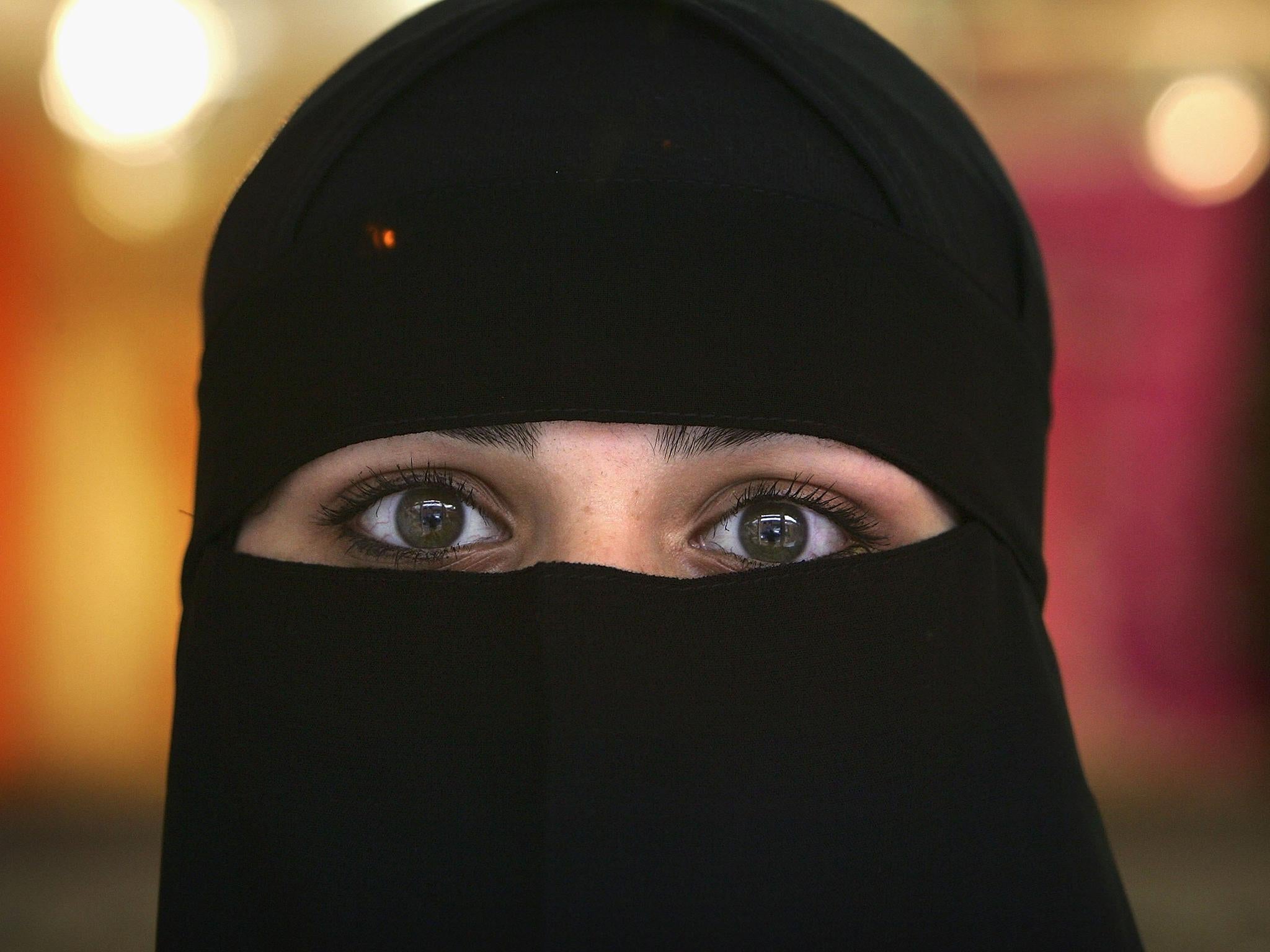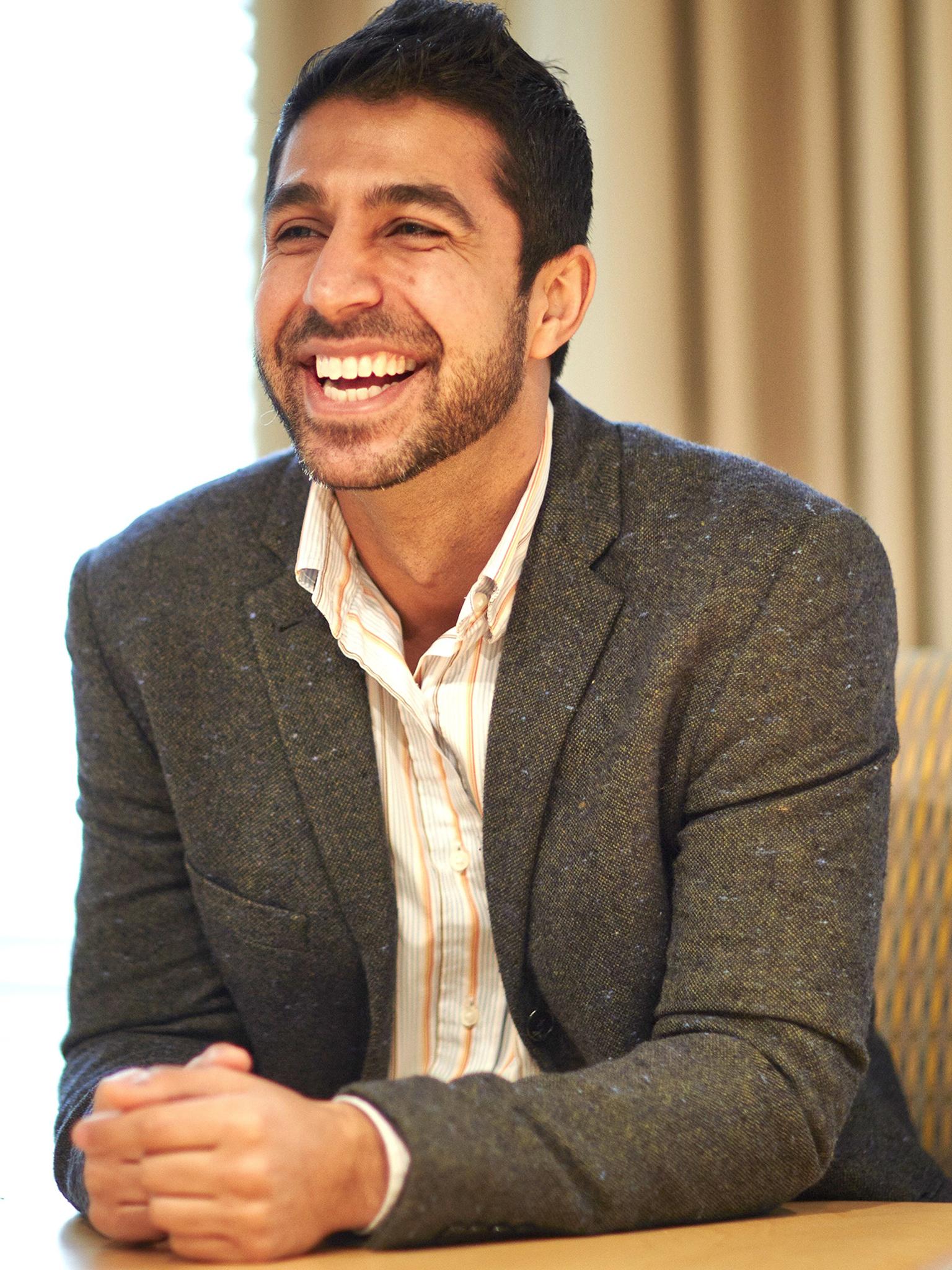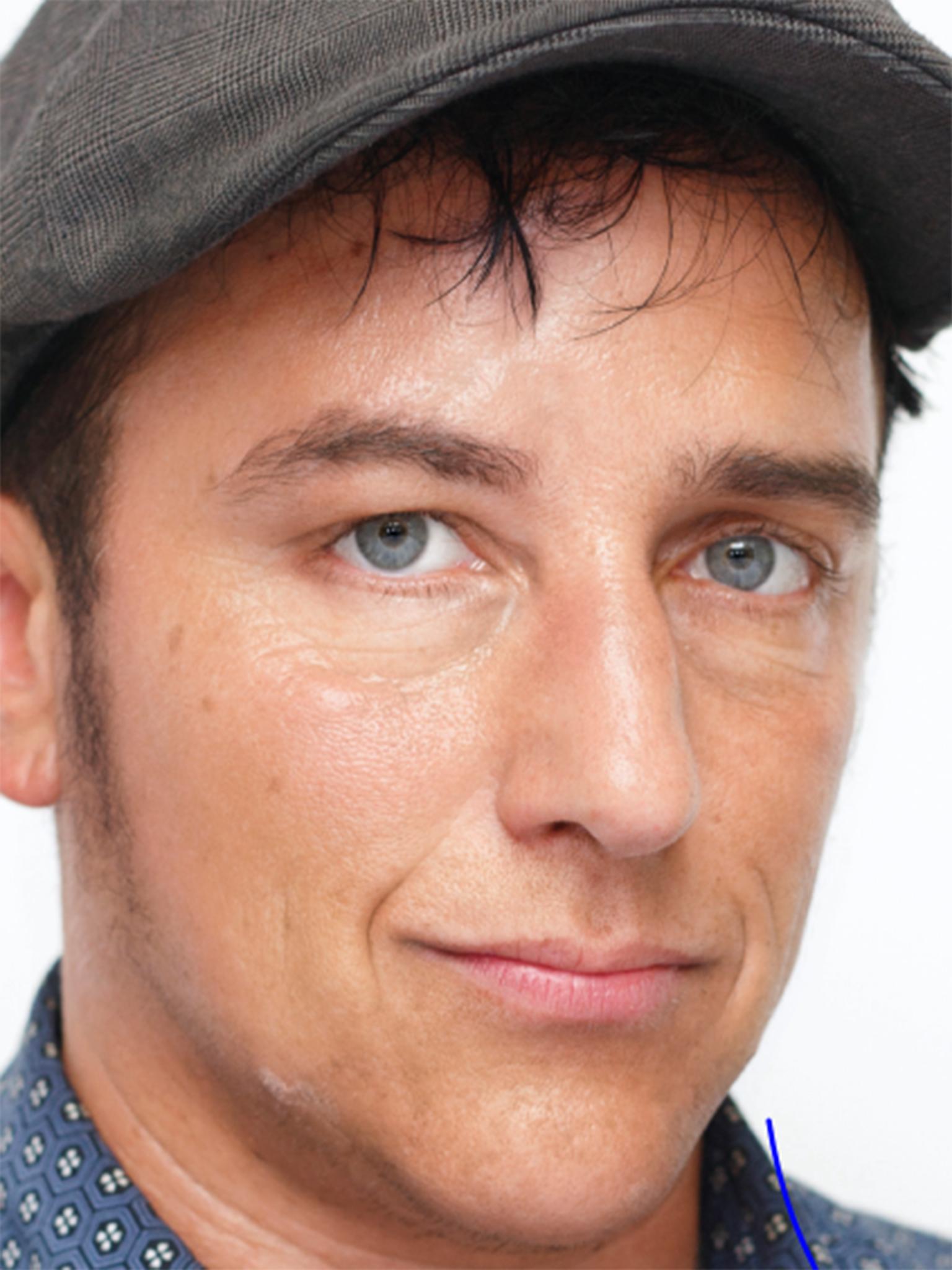Muslims, Jews and Christians on being LGBT and believing in God
The lesbian, gay, bi, and trans-rights charity Stonewall has enlisted faith role models to tackle the idea that religion and sexuality are mutually exclusive

Organised religion and sexuality haven't always been the most comfortable bedfellows. And interpretations of religious texts, from the Bible to the Quran, have been used to argue that being LGBTQ is a sin. In some 74 countries around the world same-sex relationships are illegal, while the rights of trans people remain unprotected - with religion often a sticking point for progression.
To tackle the idea that having faith in a higher power and being queer are mutually exclusive, LGBT charity Stonewall launched its Faith Role Models programme which is supported by The MB Reckitt Trust. In February, the charity enlisted representatives across 36 religious communities - including from the Church of England, Catholicism, Hinduism, Islam, Sikhism, Judaism and Buddhism - to start conversations about LGBT equality and combat harmful myths that can tear apart families and even lead to imprisonment and death.
Dominic Arnall, Head of Projects and Programmes at Stonewall, told The Independent: "There is a common misconception that being LGBT and having faith are mutually exclusive, that faith communities are exclusively homophobic and that LGBT people do not participate in faith groups or attend places of worship.
"Faith Role Models brought together 36 LGBT people from different faiths, backgrounds, and ethnicities from across the spectrum of LGBT identities. It was an inspiring and uplifting experience to see a group of LGBT people determined to challenge stereotypes. We’re here to support LGBT people to stay connected with their faith communities."
To explore what it means to be religious and LGBT, The Independent invited five Stonewall Faith Role Models to tell their stories about being open about their sexuality and their beliefs.
Tamoor Ali is 35-years-old. He is a corporate finance manager in the oil and gas industry based in London

When did you first come out and how did your faith affect this?
I came out to different people over time. I was always worried about how the faith community would react given there is no active dialogue or visible figure heads. What I have found is that it’s not the religion but the community that drives a lot of those fears.
How did you expect people to react when you came out and how did the reality compare?
I thought people would tell me that I was wrong and committing a sin that would bring shame to my family. I thought my family would be fine, as I think they draw their strength from faith. We talk to each other and they have always been hugely supportive.
When I came out no one threw stones and no one tried to convert me. There were some worried voices around how it may impact my happiness and life, but everyone came together to ensure I had a positive experience. However, there is still not a dialogue about being LGBT and Muslim – it’s more of a don’t ask don’t tell policy.
What is the biggest misconception about your faith and identifying as LGBT?
A lot of people say you can't be gay and Muslim like it is a choice. Islam is a very accepting religion and its foundations are based on peace, befriending and supporting each other.
What do you hope to achieve?
I hope to be one voice, a role model, someone who other LGBT and ally Muslims can look to and say it is OK: the world has not ended and that we are all stronger together. I want to give young people the chance to grow and achieve their fullest potential.
What is your advice for anyone who is nervous about coming out who is a member of your faith?
I would encourage them to start with some safe people who they can confide in and build a social network. Don't worry about doing it all once. Your family will always come around but you will need to support them in getting there as it’s not easy for anyone. They also have to come out constantly and it’s important to them to know that you are OK. So share your stories and introduce them to your life as much as you can.
It can be super hard but you are who you are and you will be happier, fulfilled and achieve more in life if you can be yourself fully. Don't let anyone take that away from you.
Abbey Thornton is 19-years-old. She is from Buckinghamshire and is a Sociology student at the University of Bath

When did you first come out and how did your faith affect this?
A common misconception is that you only come out once. I started talking about my sexuality when I was 16-years-old and came out to my parents and friends then. But I think most important is when you come out to yourself – when you accept it. When I first had thoughts about being LGBT, my faith was so damaging.
A close religious friend encouraged me to be celibate, and I had to really grapple with my faith and research the scripture to not hate myself because of all the negative attitudes within the church. Now I’m a Quaker, and my faith community is very supportive and encouraging of me and my sexuality.
How did you expect people to react when you came out and how did the reality compare?
I think I was expecting people to be better with it than they were: many people thought they accepted it and didn’t mind, but their language and actions were often accidentally homophobic. People do always get better with time and conversation though, I’m lucky now to have very supportive family and friends.
What is the biggest misconception about your faith and identifying as LGBT?
That I’m not very religious: people presume if I’m actively LGBT+ and proud of it that my faith is not overly important to me. The assumption that you can’t be both is made by both communities. In reality, I really care about my relationship with God and my faith is important to me, and I know now that being who I am and being with who I love doesn’t invalidate that.
What do you hope to achieve?
When I was really, really struggling with marrying my faith and sexuality, I had some very low times. One of the things that got me through was this conviction that I would use this experience, get through the other side, and help people like me so they never have to feel like that. I want to show as many LGBT+ people of faith that unconditional love from God means unconditional, and that your love is not a sin, He made you how He wants you to be. I am so passionate about being a living example against people’s misconceptions. I want to actively challenge and improve institutional Christian attitudes to homosexuality, and encourage intersectional understanding of religion with the LGBT community.
What effect has taking part in the programme had on you?
It’s been powerful – just sharing and learning with such an incredible, varied and brave group of individuals was so inspiring. It’s also opened my eyes to how much there is left to do, and given me the confidence to start being a more active, public role model for LGBT+ people of faith.
What is your advice for anyone who is nervous about coming out who is a member of your faith?
As a Christian, I think my advice would be to get personal with God. If you really go into the scripture, the homophobia and transphobia of the church has no basis in Jesus’ teachings. Find safe, caring people who understand this, find a church who does not "tolerate" you but accepts you inherently into the church family, and start small. There are also so many amazing resources online that go over the positive Christian position towards homosexuality and its basis in the Bible, so check those out.
And be kind to yourself. You’re not going to be able to be brave all the time and that’s OK, you don’t have to do it all at once. Practically, it sometimes helps to just talk about your feelings, sexuality or gender as if someone already knows, and then it seems more natural and less scary because you don’t have to make some big announcement. The most important thing I can say is it gets better, even when you feel like it won’t. Some people close to me weren’t great when I first came out but now have no issues with it and it feels totally normal to them.
Luke Dowding is 29-years-old. He is from Seaford and works in administration and business management

When did you first come out and how did your faith affect this?
I had been on a journey from a very young age, around eight or nine in acknowledging that I was not attracted to the opposite sex as my peers were. My faith complicated this journey as I belonged to a Conservative and Evangelical Church whose teaching on sexuality was hardline and traditional. However, I’ve never been in a position in which I’ve been able to doubt the existence of God (much to my great annoyance at times) and so leaving my faith group was not an option for me. I had to learn how to reconcile the two as essential parts of my character and identity. I am no more gay than I am a Christian, no more a Christian than I am gay.
How did you expect people to react when you came out? How did the reality compare?
I was scared that I would be cast aside and that there would no longer be a place for me in the Church. It wasn’t an easy journey and there have been some who I would have called friends and family who have not been able to join me on that journey. But, for the most part I continue to be amazed by how inclusive those of faith can be. It’s almost as if that’s central to the message of Christianity. However, the Church still has a long way to go before I can hold my hands up and honestly say that I am treated as an equal.
What is the biggest misconception about your faith and identifying as LGBT?
Both “sides” often act as if you’re betraying them and not being fully and authentically one or the other by acknowledging that you are both. I would say that the biggest misconception is that you can’t be both LGBT and of faith, that they are mutually exclusive.
What do you hope to achieve?
Churches to be a safe, inclusive and affirming place for all – particularly regardless of sexuality or gender identity. I also hope to one day become an ordained Minister in the Baptist Union of Great Britain, which is currently denied to me.
What is your advice for anyone who is nervous about coming out who is a member of your faith?
Do so at your own pace and in your own time. Find someone you can trust who is either a part of your faith community or outside of it who you can share your feelings, frustrations and hopes. It’s much like coming out in any context as you can never fully predict how people will react and so a support network of some kind is essential.
If you are worried, then look at what is causing that fear: if it is something external to your influence then try your upmost to allow yourself only to focus on what you can change. Coming out is a personal process, one which allows us to reconnect with our authentic selves in whichever context we find ourselves in and so cannot be mandated or governed by a standard set of rules and behaviours.
Jide Rowland Macaulay is 51-years-old. He is the founder of the House Of Rainbow LGBT-friendly church and lives in London

When did you first come out and how did your faith affect this?
I came out as gay in 1994, after a failed heterosexual marriage. My faith affected this because I struggled to reconcile my Christianity with being gay, I relied on the dangerous teaching that homosexuality is nothing but evil. It was a devastating struggle and conflict. Ironically, my Christian faith was also my saving grace, as I now know that God loves me regardless, so I trained to be a role model so I can tell the world and other LGBT people that GAY actually stands for ‘God Adores You’.
How did you expect people to react when you came out and how did the reality compare?
I expected condemnation, ostracism and fear and I was not disappointed. The rejection crushed me emotionally, mentally and spiritually. When I realised that the pain was not going to go away I prayed for direction and I was led to a place where I could study more about being gay and a Christian. The reality is the power of self-acceptance and reconciliation of my faith with my sexuality.
What is the biggest misconception about your faith and identifying as LGBT?
That being gay is an abomination and that God hates LGBTQ people. And that it is against my culture and that it is unnatural. These misconceptions only further frustrate the wellbeing of LGBTQ people and increases self-hatred and other harmful behaviours.
What do you hope to achieve?
My hope is to achieve freedom of mind and celebration of LGBTQ people of faith, a turnaround for LGBT of faith to reconcile and know who they are and whose they are. I want to achieve a high level of self-acceptance within the Black faith communities in the UK and around the world.
What is your advice for anyone who is nervous about coming out who is a member of your faith?
Coming out has enormous advantages, it makes the person whole again, freedom from fear and anxiety, the ability to love yourself and love others.
Surat-Shaan Knan works as LGBTQI project manager for Liberal Judaism, a faith-based UK charity. He grew up around the Mediterranean and now lives in London

When did you first come out and how did your faith affect this?
When I grew up, although there were some notions of me being gender-variant, I was told by everyone that I was born a girl and that was that. I didn't know the word 'transgender', even less so ‘trans Jew’. It would have sounded like an oxymoron. I did come out as gay or queer eventually, but this identity seemed rather mismatched. I came out as transmasculine quite late in life, after moving to the UK to join the Liberal Jewish Movement over a decade ago. My faith actually really helped me to come to terms with my identity, and I feel blessed to be part of such a progressive faith community.
How did you expect people to react when you came out? and how did the reality compare?
I had been out as genderqueer for many years, and being a campaigner I was used to getting all sorts of reactions, positive and negative. So I didn't really think about it too much to be honest. I was prepared that not everybody in my family and among my circle of friends may equally embrace my transitioning. Yes, it was a bit scary but at the same time I felt excited to finally being able to become "myself".
Most people were totally fine with me being trans, and some not so much. Some just needed a bit more time and space to understand and learn, and that's OK. Ultimately, they realised I wasn't becoming a different person. They saw me being happier and that made all the difference.
What is the biggest misconception about your faith and identifying as LGBT?
The biggest misconception is that faith and LGBT identities are at odds with each other. There's the idea in the perhaps more conservative Jewish communities that gender variance and same sex attraction is some sort of modern, secular trend and thus LGBT people in Judaism are not "real". The truth is that LGBT people have been part of this world since creation. It's time to recognise and celebrate our contribution to the Jewish community and society at large.
What do you hope to achieve?
It feels really empowering for me to meet other LGBT people of faith, and see the network growing. Personally, I do think a lot about visibility, and I hope by being out and proud I can help create safe and positive spaces for other trans and non-binary people of faith and none.
What is your advice for anyone who is nervous about coming out who is a member of your faith?
There are still a lot of misconceptions both about 'being LGBT' and 'Jewish', so it may not be an easy road if you come from a more conservative Jewish community, but it is possible. You are not alone, there are many LGBT Jews and allies, who understand and support you. In almost every country, there are LGBT-inclusive synagogues and support groups. You can find their contact details online.
Make sure you keep safe and have a support network when you come out. Be mindful who you confide in and take it one step at a time. It is your choice how public you want to go, always check with yourself that you feel comfortable with the next move. The most important thing is that you can be who you are.
Join our commenting forum
Join thought-provoking conversations, follow other Independent readers and see their replies
Comments
Bookmark popover
Removed from bookmarks